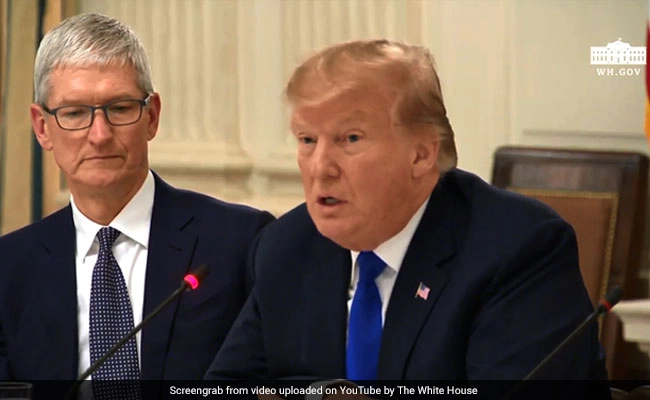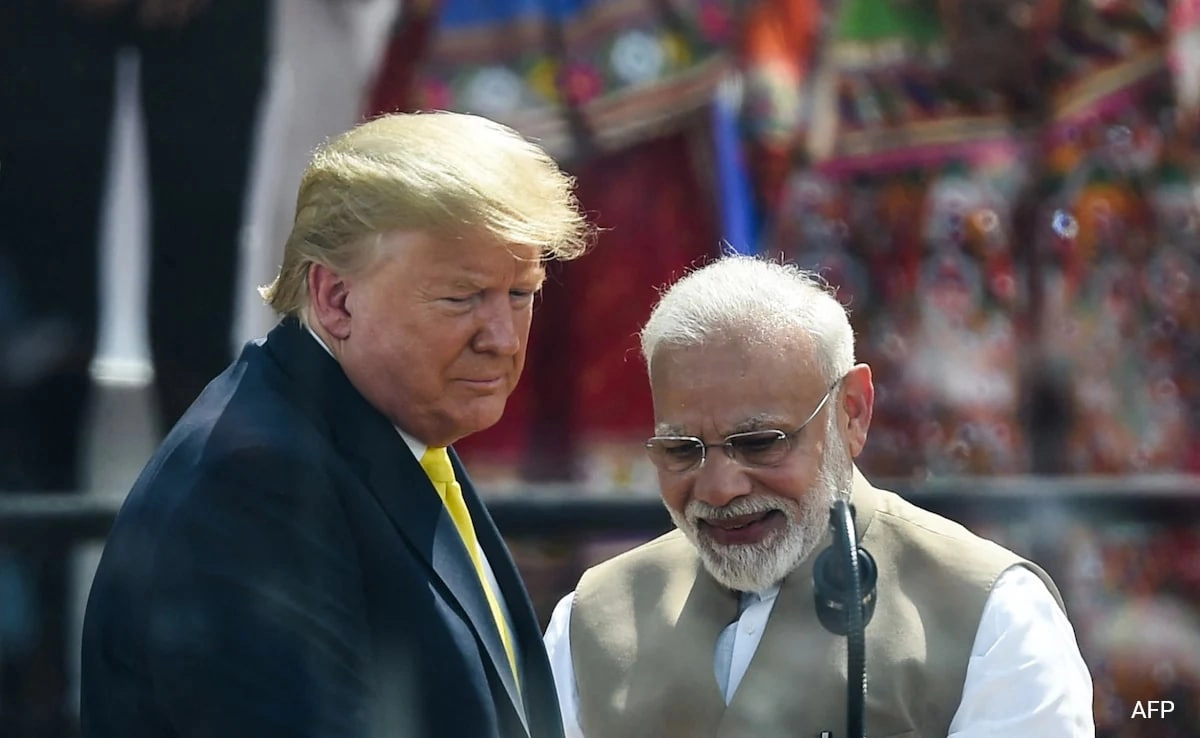In a striking exchange that amplified tensions between the tech industry and international business operations, former President Donald Trump expressed his disapproval of Apple’s plans to expand its manufacturing footprint in India. During a conversation with Apple CEO Tim Cook, Trump made it clear that he does not support the idea of the tech giant building facilities in India, emphasizing his preference for American manufacturing. This statement underscores a broader sentiment that resonates with many who advocate for domestic production and job creation within the United States.
Trump’s remarks reflect a growing concern among many American leaders regarding the outsourcing of jobs and manufacturing capabilities to countries like India, which has become an attractive destination for many multinational corporations seeking cost-effective labor solutions. The former president’s comments come at a time when Apple, one of the largest and most influential tech companies in the world, is considering diversifying its supply chain beyond China, particularly in light of ongoing geopolitical tensions and trade disputes. The potential shift to India represents a strategic move for Apple, but it also highlights the complexities of global trade and the balancing act that companies must perform between cost efficiency and domestic economic pressures.
The conversation between Trump and Cook illustrates the significant influence that political figures can exert over corporate decisions, especially in an era where nationalism and economic sovereignty are increasingly prominent themes. Trump’s insistence on prioritizing American manufacturing aligns with his broader “America First” policy stance, which aims to bolster the U.S. economy by encouraging companies to keep their operations within the country. This approach has sparked debates about the viability of global supply chains and the long-term sustainability of relying on international partnerships, especially in crucial sectors like technology.
As Apple navigates its manufacturing strategies, the implications of such high-profile discussions cannot be understated. The decision to build in India or maintain a stronghold in the U.S. carries significant weight not only for Apple’s operational efficiency but also for its public image and relationships with various stakeholders, including consumers, investors, and government officials. The dialogue between Trump and Cook serves as a reminder of the intricate web of relationships that define the modern corporate landscape, where economic interests, political pressures, and global dynamics continually intersect.
In conclusion, the tension between Trump’s desire for American manufacturing and Apple’s ambition to globalize its operations encapsulates a pivotal moment in the ongoing conversation about the future of work and production in a rapidly changing world. As companies like Apple weigh their options, they must consider not only the financial implications but also the political ramifications of their decisions, ultimately shaping the landscape of international business for years to come.




